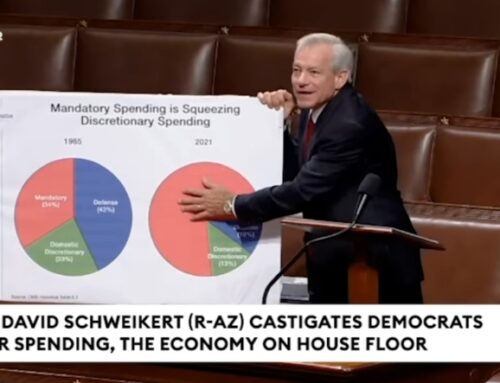When Eric Cantor was running for his sixth term, I believed that he’d been there long enough and was associated too closely with the Republican establishment. I voted for him because I didn’t want the Democrat to win and I knew that the independent conservative could not win. After reading his plan to reform Congress, “Delivering on Our Commitment,” I’m reserving judgment. We’ve been burned too many times before.
There is much to praise in the plan. Cantor acknowledges that the Republicans failed when they controlled Congress. They could have shrunk government; they grew it. They began with surpluses; they ended with massive deficits. They betrayed their core values of fiscal responsibility and limited government. Cantor understands we are only giving the Republicans a second chance.
Also, Cantor knows that the Republicans need to change the culture in Congress. For decades they’ve been spending money as our drunk Uncle Sam, borrowing trillions of dollars from China to finance earmarks, trade favors to each other, and receive automatic raises regardless of the economic climate.
The heading “Economic Growth and Job Creation,” disturbed me. As a conservative, I know that neither Congress nor the Administration can grow the economy or create jobs; the private sector does that. However, Cantor’s emphasis on reduction of government regulation and the absence of the phrase “government investment,” indicate the traditional conservative approach to helping the economy: get government out of the way.
The sine qua non of Cantor’s plan, specific proposals to reduce the size of the Federal government, are more encouraging. First, eliminate earmarks. No to bringing home the bacon. No to tractor museums and bridges to nowhere. No to being generous with other people’s money.
Second, reduce discretionary spending. During tough times, private citizens and businesses cut their budgets. Why not the federal government? Cantor mentions rescission bills which encourage Congressmen to identify waste and unnecessary programs to cut, and the YouCut program which encourages input from citizens in selecting which programs to cut.
Third, reform entitlements. It has to be done. Social Security, Medicare, and Medicaid are currently unsustainable. However, Cantor doesn’t mention specific reforms, such as means testing, raising eligibility ages, and privatizing Social Security. Is he just hesitant to mention real solutions as political poison, or is he trying to open a conversation with the public and Democrats without getting their backs up? I hope the latter.
Fourth, strengthen Congressional oversight of federal programs. The Administration, the executive branch, is supposed to be executing the laws passed by Congress. Congress needs to oversee those programs created by their laws in order to make sure that the Administration is implementing them properly and, if so, if the programs are accomplishing their purpose or creating other problems. In either case, the program needs to be eliminated or defunded.
All four of these measures to reduce the size and cost of government are bold and will work IF the Republicans follow through. Canter recognizes the need for commitment to these measures for the long haul. We still have a Democratic Administration and Senate. If the Republicans can somehow get laws effecting these measures through the Senate, the President is likely to veto them.
Will Cantor’s plan work? Will the Republicans follow through on their commitment to shrinking the size and power of government? Time will tell. But we need to follow through on holding them accountable AND giving them the support they need. We need to let our Congressmen, Republicans and Democrats, know how we want them to vote on these government-shrinking measures and to prepare ourselves to live with a limited government. We spoke loudly on election day. We need to make sure Congress and the Administration continue to hear us.





